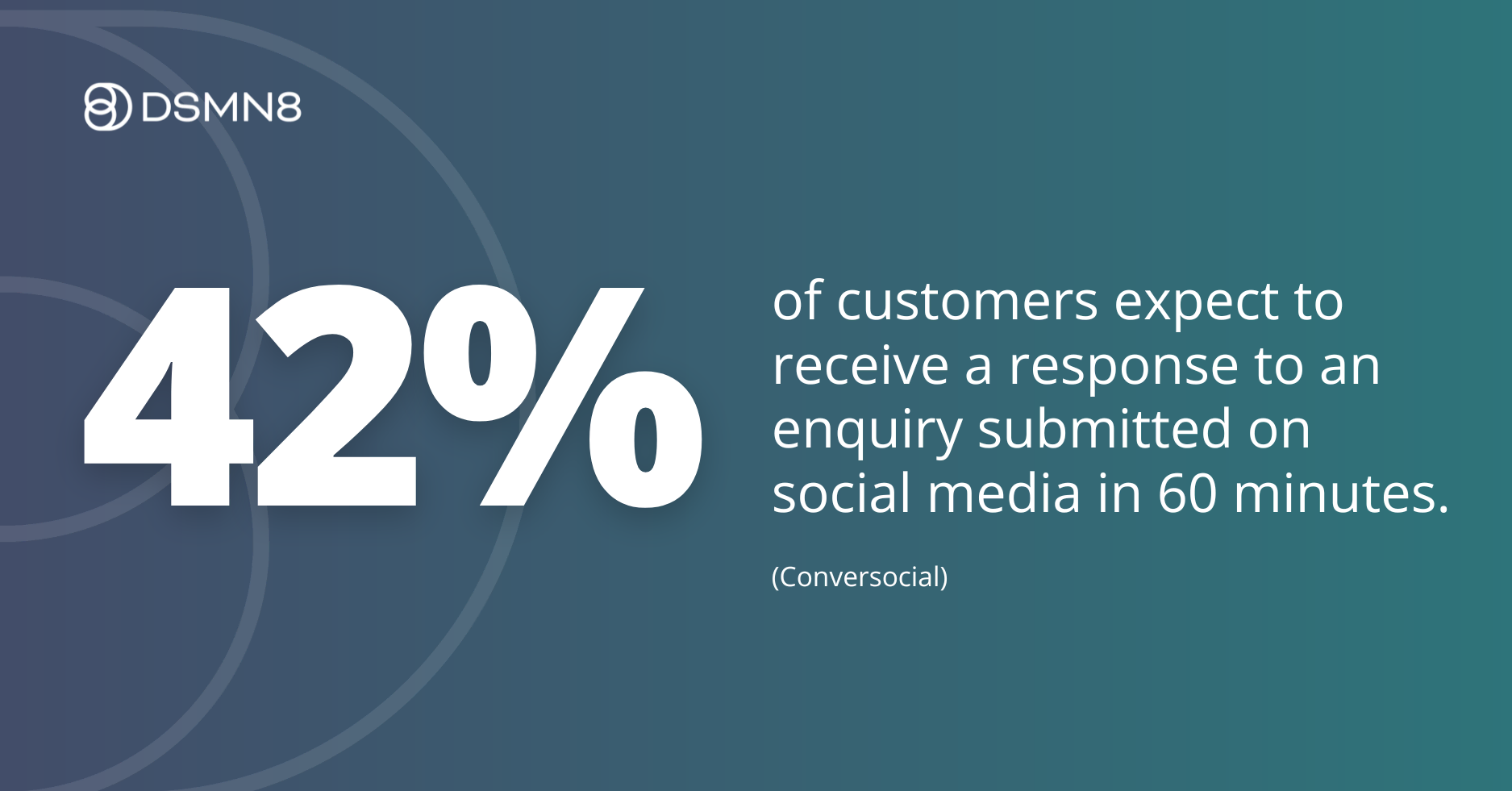Customers don’t want to wait — they want answers, and they want them now. Whether it’s a quick tweet, a message on Facebook, or a comment on Instagram, people expect brands to be ready and responsive on the platforms they already use.
Forget endless helpline queues or frustrating email chains… the businesses that win today are the ones delivering fast, meaningful support through social media.
So, what exactly is social customer service, and why should it be a priority for your business? Let’s break it down.

What is Social Customer Service?
In simple terms, social customer service means using platforms like Twitter, Facebook, Instagram, and LinkedIn to support your customers.
That could be answering questions, resolving complaints, or providing helpful resources. At its core, it’s about improving communication, strengthening relationships, and meeting customers where they already are.
The Benefits of Social Customer Service
When done right, social customer service delivers big wins for both customers and brands. Here’s why it matters:
-
Speed and convenience: Customers expect fast responses — 60% say they want a reply within an hour on social media. With tools like live chat and instant messaging, you can meet those expectations and delight your audience.
-
Cost savings: Supporting customers online can be much cheaper than traditional call centers — solving an issue online can cost just a sixth of what it would over the phone. Integrating call center CRM software can boost efficiency even further.
-
Valuable insights: Social media “listening” gives you real-time insights into customer needs, frustrations, and trends — faster and more affordably than traditional research.
-
Boosted loyalty and reputation: When companies engage with customers on social, those customers tend to spend 20–40% more. Plus, the public nature of social support means potential customers can see you in action.
How: Proactive vs. Reactive
There are two key approaches to social customer care; the best strategies usually combine both.
Proactive Social Customer Service
This means anticipating customer needs before they arise. Examples include:
-
Creating robust FAQ pages.
-
Publishing guides, how-tos, and troubleshooting tips.
-
Using social listening to identify common pain points and sharing content that addresses them.
Proactive service not only reduces inbound queries but also positions your brand as an expert and builds customer confidence.
Reactive Social Customer Service
This is about jumping in when customers reach out directly, e.g. via live chat, DMs, or public posts on social media channels.
Fast, empathetic responses can turn a frustrated customer into a loyal advocate. But be cautious: customers who turn to social media are often trying to avoid slow channels like phone support, so make sure you resolve their issues within the channel of their choice whenever possible.
Why Social Media Customer Services Matters
Your customers are already online, talking about your brand and your competitors.
By embracing social customer service, you show that you’re listening, responsive, and committed to making their experience great.
Social customer service also breaks down internal silos.
Marketing, sales, and support teams can work together toward a shared goal: improving customer experience and strengthening brand loyalty.
Check out The Social Employee e-Book to learn more about how to showcase your company culture and how to turn your employees into full-blown social sellers. The guide covers everything from trends driving the demand to how you can encourage employees to become active on social media to represent your organization.
Ready to turn your employees into effective advocates on social media?
Book a demo with DSMN8, the top user-rated employee advocacy platform.
Jody Leon
VP of Marketing at DSMN8. With over 20 years of experience in marketing and advertising, Jody leads the DSMN8 marketing team, covering brand, demand, and product marketing.



